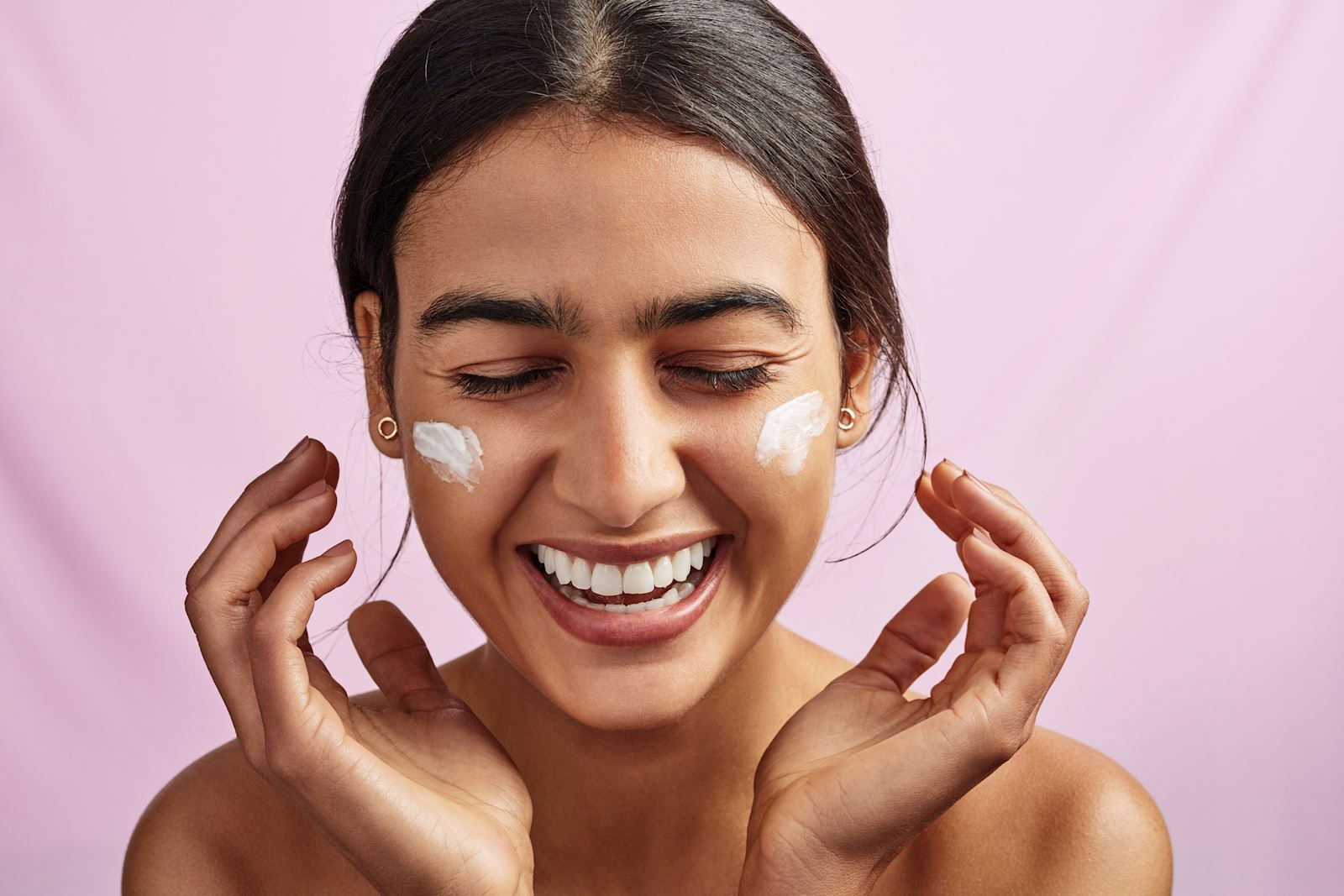When it comes to skincare, it's never too early to start your personalized, research-based routine.
Posted
on Friday, June 18, 2021

Browsing skincare products can get overwhelming fast. And trying new items can get pricey. So how do you know where to start?
First things first: Skincare can take many different forms. From oils and ointments to scrubs and scar treatments, your unique skin type requires a personalized regimen. And your skin changes throughout your life — not just during adolescence. “We actually stop producing collagen on our own around age 17,” says a licensed aesthetician here at The Iowa Clinic Medical Spa. “At about 30, collagen depletes and aging signs start to occur.”
But not only that! People in their 20s who never had any breakouts before may experience acne for the first time. This has a lot to do with hormonal fluctuations, impacts from birth control and environmental factors. As you meet these skin milestones, you may need to pull different products and ingredients into your arsenal.
Over-the-counter skincare vs. medical-grade skincare — what’s the difference?
When it comes to medical-grade skincare, Jinah likes to think of it as a prescription drug versus drugstore medicine. “You’re always going to get the best ingredients and highest quality with medical-grade skincare,” she says. Plus, it’s more concentrated, so you usually don’t have to use as much of the product, either.
Here at the Medical Spa, we offer medical-grade brands like Obagi, Alastin, Revision Skincare and others. The brands aren’t as well known because they spend less money on marketing and more on research, which means they may not be household names but have proven results.
Skincare beginner? Try these expert recommendations.
Building a personalized routine with the best skincare products for you can take time (sometimes up to 12 weeks to truly see results). Depending on the season, you may need different skincare products in winter than summer, and men have unique skincare needs, too. Any toolkit needs to have the following items, though, regardless of skincare goals and problem areas. Start with the following as your foundation, and then add additional products from here.
Sunscreen
It is recommended to use a minimum of 35 SPF daily and up to 50 SPF if you’re doing outdoor activities. And you have to reapply.
“Always make sure the sunscreen is meant for your face,” she says. “We have some really awesome ones, like a medical-grade BBCC cream with SPF protection that provides a little tint along with anti-aging peptides for more skin protection.”
Cleanser
Cleanser is absolutely necessary at nighttime, but not a must-do in the morning. Even face wipes work. “You just have to get that makeup off your face at night!” says Jinah. “Your skin repairs itself and heals then.”
Hyaluronic Acid
While hyaluronic acid occurs naturally in your skin, adding more via a serum, sheet mask or other topical treatment helps promote hydration by binding to water to visually plump up your skin and give it a dewy effect. And even though “acid” is in the name, hyaluronic acid is safe to use for all skin types.
Vitamin C
This antioxidant packs a lot of power in a small package — vitamin C helps to brighten skin, kickstart cell repair and regeneration, smooth uneven skin tone, banish fine lines and wrinkles and more. Most effective as a serum, vitamin C should be layered underneath your moisturizer for best results.
Gentle Exfoliator
Once per week, you should exfoliate. Tools like battery-powered facial brushes are helpful — just make sure you clean it after each use.
Jinah recommends making your own exfoliator by combining sugar and olive oil into a paste. It’s a mild, gentle way to scrub off dead skin and other surface buildup. If you choose a product, just make sure you’re avoiding hard, sharp granules which can be too harsh and damage your skin.
Non-Comedogenic Moisturizer
Moisturizing is really important — even oily skin can be dehydrated. And dehydrated skin actually triggers your body to produce more oils. Using a non-comedogenic moisturizer just means it won’t clog your pores as it does its job.
Retinoids, Retinols & Retin-A
Retinoids, derivatives of vitamin A, stimulate collagen growth, speed up cell regeneration and decrease inflammation. They are clinically proven to treat acne, wrinkles and a whole host of other skin issues. Available in over-the-counter and prescription strengths, this is the classic anti-wrinkle ingredient.
Retinols work for more sensitive skin, while Retin-A is a little stronger (and may even cause some peeling). Sunlight can diminish the power of retinoids, so you should only use these in your nighttime skincare routine. And be vigilant in your SPF usage if you use any of these products.
Want to learn more about your skin?
Schedule a consultation at our Medical Spa to discuss your skin concerns or skin goals, and discover what products, services and treatments may work for you.
“When you come in for consultation, it’s really all about establishing the relationship between you and your aesthetician," she says. And whether you’re coming in and know exactly what you want or you just want to learn more about your options, we’re ready to help.